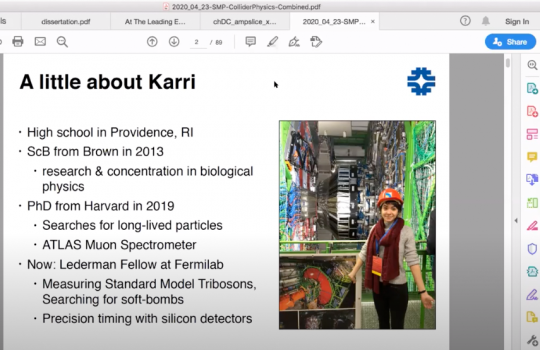A unique chance for high school students to meet and chat with scientists, engineers, technicians and mathematicians
Batavia, Ill. — High school students can learn about high-tech career options at the Science, Technology, Engineering and Mathematics (STEM) Career Expo from 5:30 to 8:30 p.m. on Wednesday, April 11, at the Department of Energy’s Fermilab. The event is free of charge and will take place in Fermilab’s Wilson Hall.
The expo will connect high school students with scientists, engineers, technicians and mathematicians. These professionals will participate in panel discussions about their careers and educational backgrounds as well as answer student questions. Informational material also will be available at display areas to give students an idea of the vast variety of careers opened up through the study of math, science and computer technology.
Contact edreg@fnal.gov for more information, or visit http://ed.fnal.gov/programs/careerfair/. No advance registration is necessary.
Event organizers include the Fermilab Education Office and educators and career specialists from Kane and DuPage county schools. Event sponsors include Fermilab Friends for Science Education, Batavia High School, Geneva Community High School, Northern Kane County Region EFE 110, Saint Charles East High School and VALEES (Valley Education for Employment System).
The mission of the Fermilab Education Office is to strengthen primary- and secondary-school education by using Fermilab resources to improve teaching and learning in science, mathematics, engineering and technology. The Education Office serves as a catalyst for improving school curricula and is a resource to schools nationwide.
About Fermilab
Fermilab is a U.S. Department of Energy Office of Science national laboratory, operated under contract by the Fermi Research Alliance, LLC. Visit Fermilab’s website at http://www.fnal.gov.
The DOE Office of Science is the single largest supporter of basic research in the physical sciences in the United States, and is working to address some of the most pressing challenges of our time. For more information, please visit http://science.energy.gov.



